Milling Your Own Whole Grain At Home – Is it Better?
Milling your whole grain at home can be extremely beneficial! It is not as overwhelming as it may sound. When I tell people I mill my own flour at home, I get all kinds of responses. Those responses range anywhere from, “You do what?” to “Wow, that is amazing, tell me more!” But, I always get questions, no matter what!

This is a picture of My husband Milling a mix of soft white wheat and spelt in our Stone Flour Mill.
How Do You Grind Whole Wheat Flour At Home?
Milling your own whole grain at home is actually quite easy. All you need is the right equipment. That equipment is a Grain Mill. There are many different kinds of grain mills out there, so choosing could be daunting. Luckily, I am here to help you! My preferred grain mill for milling whole wheat/whole grain flour is an electric stone mill. More specifically, I LOVE my Nutrimill Harvest! There are many grain mills on the market, and that is for a whole other post.
Choosing Your Whole Grain For Milling Your Own At Home
So, once you have the right equipment, all you need to do is choose the grain you want to mill! Hard white wheat is a great first grain to start with for breads, and Soft white wheat is a good grain to start with for cookies and pastries. Of course, there are several others as well, and I will get into that later in this post.
Next, after you have your mill, and you have your grains, just get familiar with your new best friend! Read your manufacturer’s instructions, and start milling! Voila! Now you have fresh, scrumptious whole grain flour! Yes, it really is that simple! Don’t be intimidated by the process, just make sure when you are starting out to try a basic recipe that is actually made for fresh milled flour, I have several here. Once you have that recipe mastered to your family’s liking, start branching out and trying new things! Nothing can stop you now!
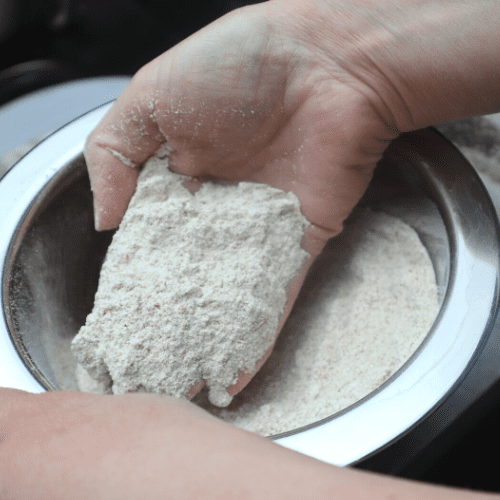
Fresh Milled Flour 101 Free Video Course
How To Grind Grains Without A Mill?
You can grind grains at home without a mill. However, the results may not be as ideal without a mill. There are some blenders like the Vitamix and Blentec that people have had decent results with. Those will get the job done in moderation with mediocre results. But, if you are looking for a fine flour, a flour mill is your best option. Also, if you are looking to grind often, or in large quantities, a grain/flour mill would benefit your needs the best!
Is It Worth Milling Your Own Whole Grain At Home?
Yes! Absolutely! The health benefits alone make it worth milling your own whole grain at home! The outstanding fresh flavor of fresh milled grains cannot be mimicked by anything else! Milling your own grain gives you the power to make your food when the flour is at it’s maximum potential, retaining the highest level of nutrition and flavor. Many don’t know that commercial flours (even the specialty expensive flours) are stripped of nearly all of the nutritional content. When the grain is processed, both the bran (fiber) and the germ (Vitamin E) are removed. The high oil content makes the flour go rancid and spoil much sooner than desired. Therefore, the expiration date on fresh milled flour is not ideal for commercial sale profits.

How Long Will Milled Grain Stay Fresh?
Once whole grain is milled, it immediately begins to loose it’s nutritional content. So, it is best to mill the grains fresh before each recipe whenever possible. It is understandable that this is not always possible. If you need to mill the grain in advance, it is advisable to keep the milled grains/flour in the fridge up to 7 days, OR in the freezer for up to 6 months.
How Do I Store My Whole Wheat Berries
I store the bulk of my wheat berries in food safe 5 gallon buckets that I purchased from Tractor Supply Store. Also, I purchased the twist Gamma lids, some from Tractor Supply, but they only stock one color. I like color coded lids so I easily can identify which whole grain is in which bucket. So, I purchased some colored Gamma lids directly from Bread Beckers while we were passing through the Atlanta Georgia area.
My favorite Everyday Use Storage Bins!
However, those buckets can be a pain to access daily, so I use these amazing everyday grain storage bins HERE. They hold a great amount, and fit nicely on my counter, and can even stack. These bins are air tight, and lock closed on all four sides with a gasket. They also come with a measuring scoop and cute little labels. Another feature I love about them, is they are clear, so I can see inside and know when the level is getting low. Lastly, I love that I can get a full scoop in them, because the top opening is just as large as the container. So convenient!
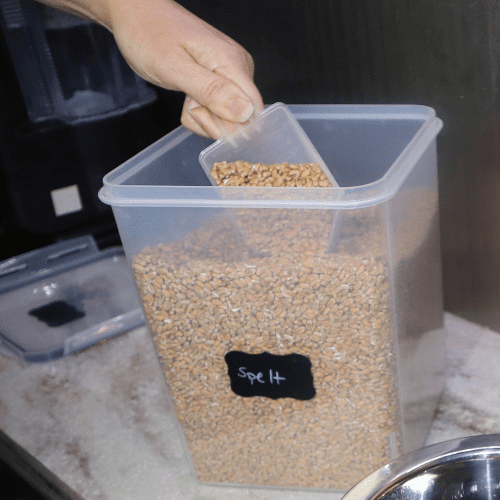
Do You Need To Wash Wheat Before Grinding?
Most commercial wheat farmers will “clean” the wheat berries (kernels) before you purchase them. In most cases, No, it is not necessary to wash wheat before grinding. However, quickly skim through the wheat for foreign materials before you mill, and just be pick any out by hand. It is important to know, that grains need to be completely dry before milling them.

Here is a photo showing a little chaff (which is the outer seed covering) This can be picked out, but isn’t necessary unless there is an over abundance.
Can Rice Be Milled?
Yes, you can mill rice. This will produce rice flour. In fact, it is advisable to mill rice every 6 months in a stone mill for cleaning and maintenance.
Where Do You Get Wheat Berries? And Other Whole Grains?
There are many places that sell wheat berries and other whole grains. You can look around locally, I know there are Amish supply stores in some areas that sell grains. Also, I have heard there was success with buying them at Winco and Whole Foods. If you don’t have anywhere local, then you may need to order them. Here is a list of online grains. I only listed grains that I personally purchased, and I can recommend. (This is not a complete list, as I have not ordered from all the companies, so just because it is not on my list, does not mean it is a bad place to buy it)
- Bread Beckers
- Palouse Hard White Wheat
- Palouse Hard Red Wheat
- Einkorn
- Spelt
- Palouse Soft White Wheat
- Oat Groats
- Kamut
- Barley
What Grains Can Be Milled?
Almost any dry whole grain is acceptable for milling. Check your manufacturer’s recommendations for any discrepancies. Commonly milled grains include:
- Hard Wheat Varieties (Hard Red & Hard White)
- Soft White Varieties (Soft Red & Soft White)
- Ancient Grains Varieties (Durum, Emmer, Einkorn, Fife, Kamut/Khorasan, Spelt)
- Whole Grains (Oat Groats, Barley, Quinoa, Millet, Sorghum, Rice, Rye, Buckwheat)
- Dried Legumes (Dry Beans, Dry Chickpeas, Dry Lentils)
This is a picture of my Nutrimill Harvest. Counter space is precious in an RV, but it has earned a permanent place on my countertop.
This picture also shows the everyday grain bins I use, and they are fantastic!

Recommend To Read Next After Milling Your Own Whole Grain At Home
I recommend to continue learning in my next post on What Do You Need To Know About Milling Your Own Flour
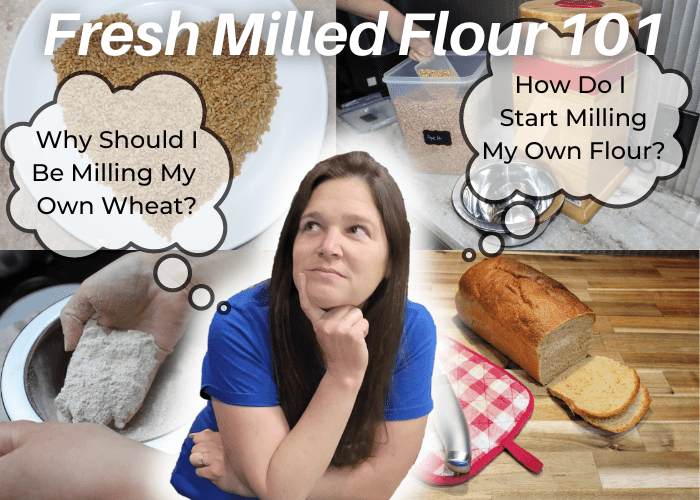
Also, If You Want To Learn More About Milling Your Own Flour, I have a Fresh Milled Flour 101 post. So, I Recommend Starting There!
My Recipes:
How To Feed Your Sourdough Fresh Milled Flour
Recommended Resources:
Sue Beckers Fresh Milled Wheat Recipe Book
Sourdough & Fresh Milled Wheat Book
Complete Review Of My Bosch Compact Mixer – Best Stand Mixer For Small Spaces
Here is my complete & honest review of my Bosch Compact Mixer! I also go over it’s features and attachments available. I also have a written review, if you prefer HERE
*This post may contains affiliate links, which means I make a small commission at no extra cost to you! As an Amazon Associate I earn from qualifying purchases







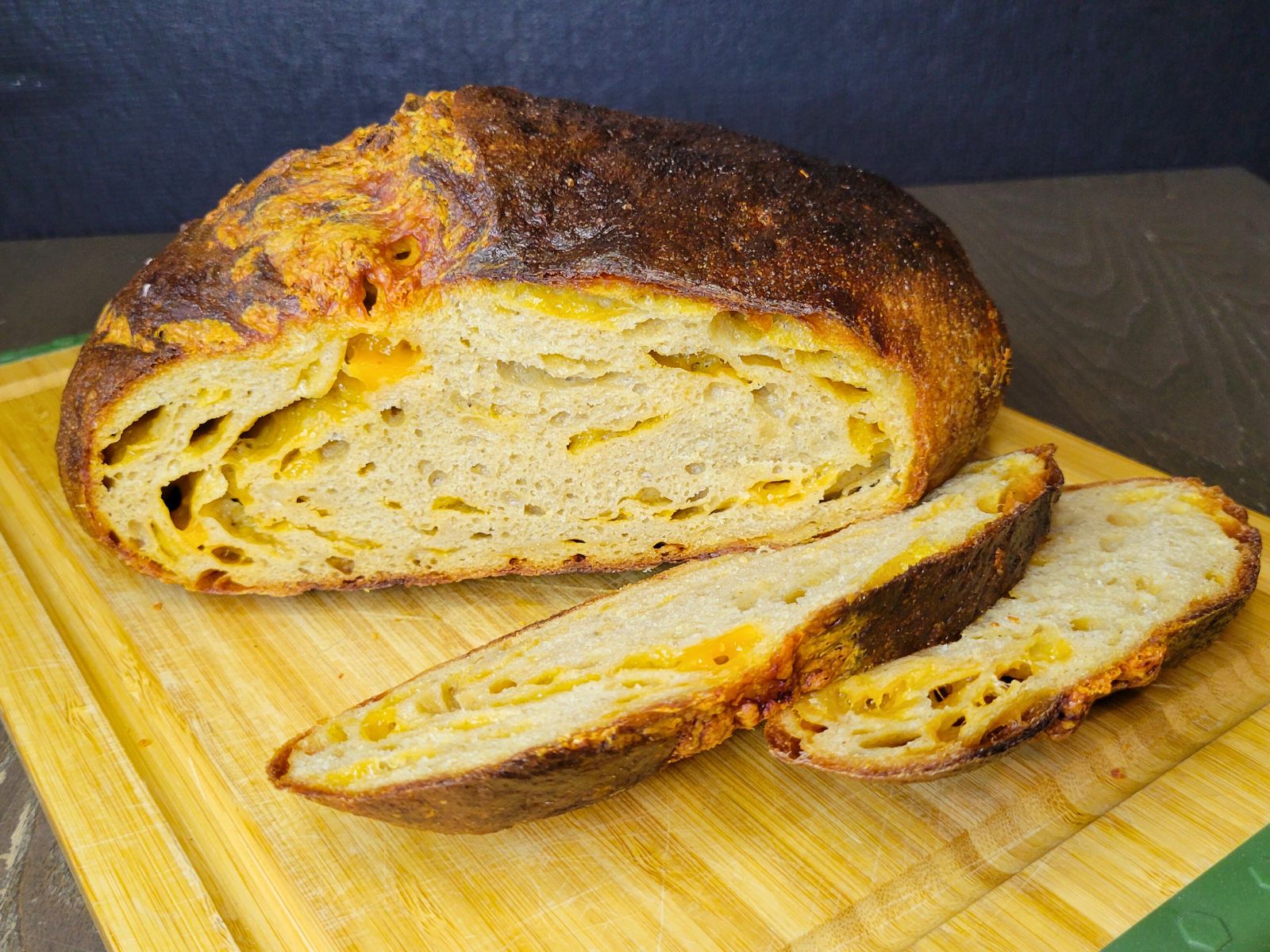
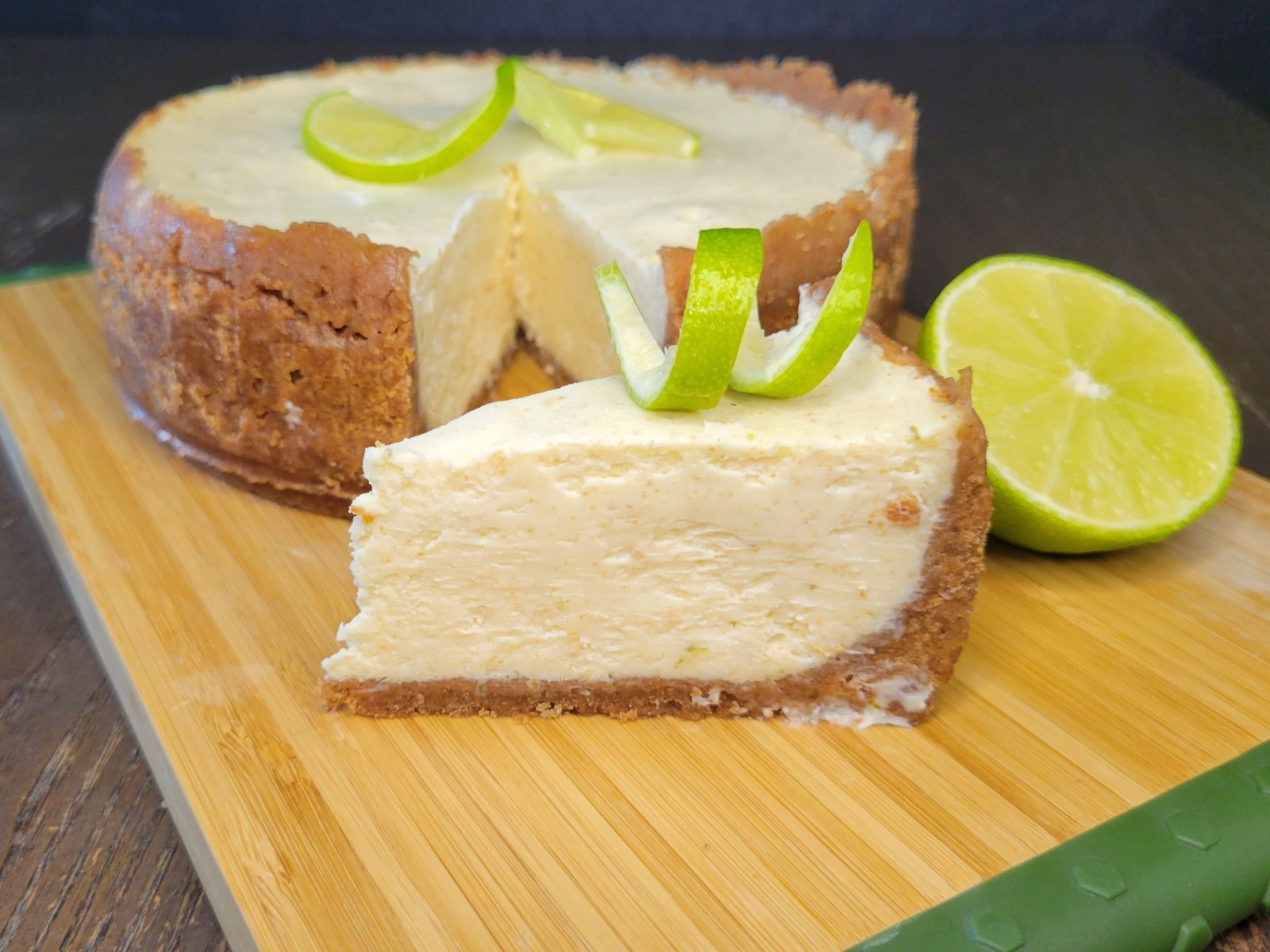
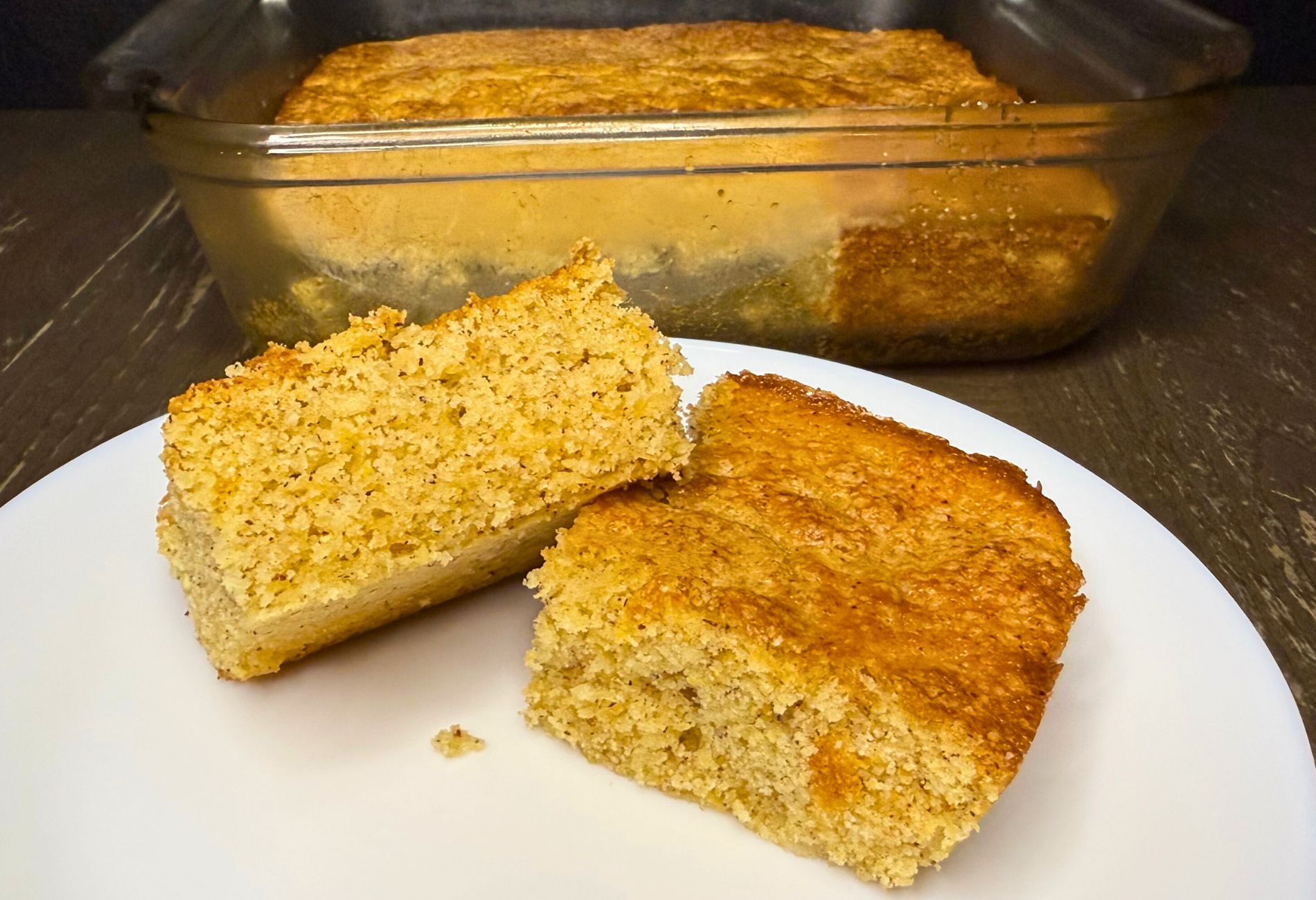
Kudos on your comments about fresh milled flour, and it’s health benefits. What I am surprised about though, is that you do not mention that buying Organic Wheat instead of conventionally grown wheat even once.
Are you aware that conventionally grown wheat is sprayed 4-6 times with toxic synthetic chemicals, and many times with Roundup (Glyphosate) just Prior to harvest?
These chemicals are responsible for many diseases like cancer and many others like Alzheimer’s, ALS, MS and Parkinson’s.
Before I buy wheat from a new supplier, I always ask the pointed question: Do you use Synthetic chemicals on the wheat or other grand that you grow or sell or does the farm that you buy your grains from use them?
I asked this question of a new supplier that I was thinking about buying from. After SIX emails back and forth they refused to confirm or deny whether the grains that they sold had been treated or sprayed with synthetic chemicals. Instead, they told me that I should buy elsewhere, which is a non-admission admission!
Another company, when asked that question, responded with: We do not ask our farmers about their growing practices.
I DO NOT buy from either of these companies!
Thank you for all of your wonderful recipes, I plan on trying many of them!!
I do agree organic is the better option, but I am also trying to reach out to everyone. Including, anyone that may be new to milling their own grain, or someone on a budget. So, if you can get your hands on organic and can afford it, definitely go that route! But, if it isn’t in the budget, or you can’t access it, then non organic is still better than the overprocessed flour and wheat products from the store. Thank you for your info, and I am happy to have this info for any of my readers!
Kara, I am soooooo happy I found you!
I am planning on using your sourdough chocolate chip cookies here in a minute.
I pulled out my unused starter from the fridge, a few days ago, to feed and use. It didn’t “start”. So yesterday I read your site and you recommended rye. Which is what I started it with years ago!!! I had stopped using my sourdough because I couldn’t find any recipes that used sourdough in with milled grain in a recipe, except sourdough bread, until you!!!! I love you!!
Yay! Thank you! I am glad you are here! Yes, I love to work with fresh milled flour, and my friendly little starter “Bubbles” loves to help along the way! Those cookies are my family’s favorite cookie, the brown butter sourdough chocolate chip cookies! They are requested weekly! lol
Hello. I just watched a couple of your videos and read some of your blog posts. I’m researching where to buy grains and I know you only recommend stores which you’ve purchased from. A few questions — what’s the storage life of these grains? how much do you buy; 2-5 lbs at a time? I’m a home bread baker but I have storage limitations. Do you know anything about Maine grains? quality? pricing? Thanks for your help! Cynthia (in NH)
Hi! The storage life on the whole grains is indefinitely, as long as they are kept safe from pests, and moisture. I go through a lot of grain, and purchase generally 25-50 pounds at a time of a few different variations. We travel with 4-5 five gallon buckets of different grains at any given time. I like to have a variety, so you could choose 1 or 2 varieties you use most, and just buy that in bulk. I have not purchased from Maine grains, so I am not sure. Lately, I have been getting most my grains from Azure. Here is my most recent Azure haul where I show you the quality and kinds of grains I purchased. https://youtu.be/89M99EZ4GDc
Here is the link of some other grain places, and any coupon codes I may have available. https://grainsinsmallplaces.net/shop-grains-in-small-places/
I hope that helps! Happy Baking! 😊
Help! I just ordered grains directly from a farmer, and on the packaging the farmer insists freezing the wheat berries the first week after delivery to kill eggs and bugs that may be present in the berries. I have read on the internet NOT to freeze wheat berries, as then they have moisture and cannot be milled afterward. What should I do?
I have only frozen some of my grains. I’m not sure if buying directly from the farmer if they are recommending it, it might be good. If you freeze them, I have never had an issue with moisture in the grains if they are poured into a sealed container after frozen. There may be condensation on the outside of the container as they thaw, but I haven’t had an issue inside the container. Let them thaw before milling. Bay leaves are a trick people use yes. I have no idea if it works or not, but many people seem to think it does. I put them around our RV, because I figure it can’t hurt, right. 😉
I hope that helps! Happy milling!